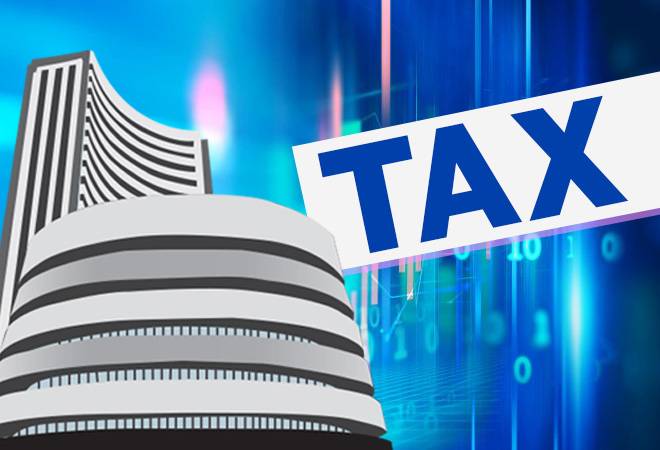What is E-Commerce?
E-commerce is the use of internet for supply of goods or services including digital products. For instance, online shopping or online ticket booking is a form of e-commerce.
While E-commerce transactions may be structured in many creative ways, below is the representative structure of an E-commerce transaction which is relevant for Tax compliances:
E-commerce transactions are facilitated by aggregator platforms or “E-commerce Operators (ECO)”. Though Amazon and Zomato are popular examples, there are several lesser-known platforms emerging in India.
Indian tax laws identify “e-commerce operators” as a person who owns, operates or manages digital or electronic facility or platform for electronic commerce.
On the other hand, vendors and sellers who use such platform/marketplace to sell their products and services are called “e-commerce participants”.
Having understood parties involved, let us now discuss tax compliances applicable to E-commerce company.
Compliance under Income Tax Act:
TDS u/s 194-O
Generally, in the e-commerce model, the platform receives money from end customer for goods or services sold by actual sellers/service providers using the platform. This amount is then transferred to sellers/service providers after retaining platform’s commission.
At this stage of transfer of amount, the platforms are required to deduct tax @1% on gross sales amount. In absence of specific clarification “gross sales” include GST, if any, charged on goods or services and not exclude platform’s commission.
Exception
The TDS is not required to be deducted if:
- Seller/service provider is an Individual or HUF
- Gross amount of sale or service provided during the financial year is less than Rs. 5 lakhs
- Seller/service provider has provided PAN or Aadhar no. to ECO
Equalization levy
First introduced in 2016, the equalization levy, was applicable on online advertising. However, from 1st April, 2020, its scope was widened to include consideration received by non-resident e-commerce operators.
Rate of levy
Non-resident e-commerce platforms are required to pay 2% of the amount of consideration received for supplies or services provided to Indian resident customers. However, 2% equalization levy need not be paid on that portion of goods which are sourced from India.
E-commerce Supplies and service:
- Online sale of goods owned by the e-commerce operator;
- Online provision of services provided by the e-commerce operator;
- Online sale of goods or provision of services or both, mediated by the e-commerce operator;
- Any combination of above activities
Exception:
- The levy is not applicable if total consideration received by non-resident e-commerce platform is less than Rs. 2 crores in a financial year.
Annual Reporting
An annual statement in Form No. 1 needs to be filed on or before 30th June of subsequent financial year. The form can be filed electronically on income tax department’s portal.
Statement of Financial Transactions – Reporting Funds Raised
The income tax law has made taxpayers responsible to report certain high-value transactions, which are to be reported in Statement of Financial Transactions on annual interval.
E-commerce companies may require huge funds to build their systems and infrastructure. For this, the may raise funds from the investors. If the funds are raised by issuing bonds, debentures or shares, such transaction are required to be reported. However, such reporting is not required if funds raised from a person is less than Rs. 10 lakhs in a financial year.
Apart from above, reporting may also be required for any other transactions. Section 285BA and Rule 114E of Income Tax Act specify nature and value of transaction that need to be reported.
Penalty for failure to furnish SFT
- Failure to furnish statement of financial transaction will attract a penalty at the rate of Rs. 100 per day of failure.
- If a notice was issued to file the SFT and despite that taxpayer fails to file the statement within the time given in the notice, then a penalty will be levied at Rs. 500 for every day of default.
- Penalty of Rs. 50,000/- can be levied for inaccurate filing of SFT.
Compliance under GST Act
Registration of E-commerce operator under GST
Under GST law, a business must mandatorily get registered if its turnover exceeds certain specified limit. However, no minimum threshold limit is available to ECO. Therefore, E-commerce operator must seek registration and make payment of GST right from the first transaction.
GST Applicable on E-commerce Transaction
Tax on Commission
E-commerce platforms provide service of providing marketplace. For their services, they usually collect commission on transactions facilitated. Additionally, they also generate advertisement fees, logistics charges, etc. These services are taxable under GST Act. Therefore, GST @18% needs to be paid on such fees and commission.
TCS (Tax Collection at Source) under GST
The e-commerce operator (ECO) is required to collect TCS of 1% on net value of ‘taxable’ supplies made through it by other suppliers where the consideration is to be collected by the ECO.
This means, TCS need not be collected when:
- Goods or services provided through e-commerce platform is exempt from GST; or
- Consideration for goods or services is directly paid by customer to actual vendor/seller.
For this, the ECO have to get separate TCS collection number (separate from normal registration) from GST portal. Effectively, there will be 2 registrations for the ECO, 1 will be for TCS collection and 1 will be for filing other normal returns such as GSTR-1, GSTR-3B etc.
TCS Payment and Returns
TCS collected by the ECO must be paid on or before 10th of next month and monthly return needs to be filed in Form GSTR-8.
Owing to multiple tax compliances applicable, every e-c0mmerce company, irrespective of size and scale, must have robust compliance management system. One approach is to embed these transaction based taxes in platform’s software while developing the payment processing part of platform.
For any queries/clarifications/comments, please reach us at cakevalm@gmail.com.
Disclaimer: This article is for the purpose of general awareness and does not represent professional opinion of the author.


